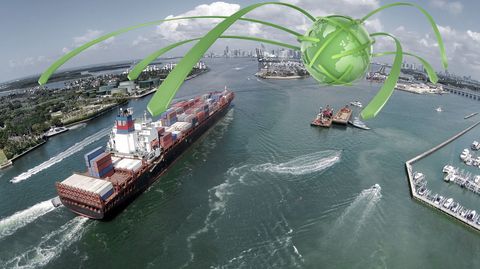In the last few months, the European Union has offered substantial evidence of its commitment to international trade, with discussions over the Comprehensive Economic and Trade Agreement, the Transatlantic Trade and Investment Partnership and the trade implications of Brexit all dominating the agenda.
At a time when populist support for protectionism is on the rise, the EU remains as determined as ever to enshrine the free movement of goods as one of its core tenets. To this end, efforts are currently being made to modernize and strengthen the trade defence instruments (TDIs) it has in place to ensure fairness prevails in the global marketplace.
The European Commission believes this is a crucial element of its efforts to enshrine its position as the largest trading bloc in the world, and is therefore calling on all member states to support its proposals, thus ensuring the EU remains well-placed to deal with the current realities of the international trading environment.
The background
At present, the EU accounts for 15 per cent of global imports, which is second only to the US. Despite this, the union's trade defense measures correspond to only 7.8 per cent of those in place on a global basis, affecting only 0.21 per cent of worldwide imports. Although this reflects self-restraint to a degree, this disconnect is largely due to limitations caused by the outdated nature of current legislation.
As such, the European Commission believes the rules have become insufficient to mitigate the impact of unfair foreign competition, with significant overcapacities resulting in dumped exports on the EU market that are harming competitiveness and hindering job creation.
With 30 million jobs directly related to exports in the EU, the Commission is seeking to revamp its TDIs to make them fit for purpose once again, while it also plans to table a proposal for a revised anti-dumping methodology before the end of the year.
Enhancing and modernizing TDIs
The TDI modernization proposal the Commission is pushing was first announced in 2013. If enacted, it would provide TDIs with improved transparency, faster procedures, more effective enforcement and changes to the application of a key piece of legislation called the Lesser Duty Rule (LDR) in certain well-defined circumstances.
At the moment, the LDR means that dumping from a third country and corresponding injury to EU businesses need to be proven to trigger anti-dumping measures. The level of duties is then dictated by either the dumping margin or the level that removes injury, whichever is lower.
In practical terms, this has opened up a number of industries, including the steel sector, to damaging increases in the volume of dumped imports. On comparable dumped products originating from China such as cold-rolled flat steel products, the average EU anti-dumping duty is only 21.1 per cent; by comparison, the US is able to levy a 265.8 per cent duty.
As such, the European Commission is looking for ways to adapting the LDR to cases where there are massive overcapacities or raw material distortions - for example in energy prices - while shortening trade defence investigations by two months and changing the present methodology for calculating the target profit.
New anti-dumping methodology
Meanwhile, the new anti-dumping methodology plans first outlined in July have been announced take into account key changes to the international legal framework. This is a consequence of the imminent expiry of certain provisions on dumping calculations in the accession protocols of several countries to the World Trade Organization.
The new method will adjust how dumping is calculated on imports from countries where there are market distortions, or where the state has a disproportionate influence on the economy. It would include a transition period during which existing anti-dumping and anti-subsidy measures would remain subject to the current legislation, meaning ongoing investigations would not be affected.
A further strengthening of the EU anti-subsidy legislation has also been mooted, which would ensure that new subsidies revealed partway through future investigations could also be considered and included in the final duties imposed.
The importance of prompt action
The number of EU jobs directly dependent on the export industry has increased by two-thirds during the past 15 years, showing how important it is for the Commission to make sure fair practise and unadulterated market conditions prevail.
President Jean-Claude Juncker said: "Trade is essential for our economic growth and jobs creation, but we should not be naive. Our current rules are proving insufficient to combat the harm from unfair foreign competition; some EU industries have lost thousands of jobs. We cannot stay idle - the EU's trade defence rules require an urgent update."
Commissioner for trade Cecilia Malmstrom added: "Trade is key for growth and jobs in Europe. We have an ambitious agenda to open markets and create business opportunities and advantages for citizens and businesses.
"Trade also needs the trust of the public; that is a reason for why this Commission tirelessly works for inclusive, transparent, fair and value-based trade."






